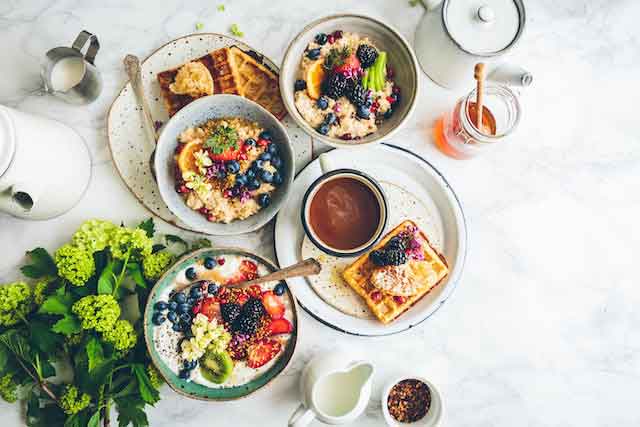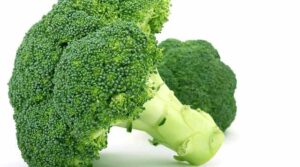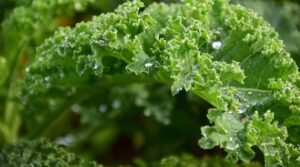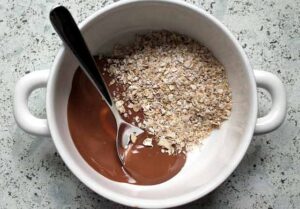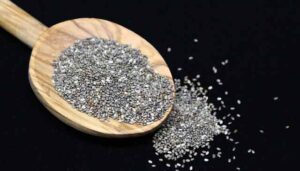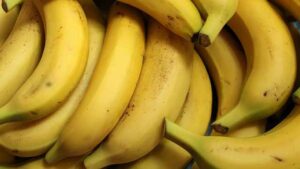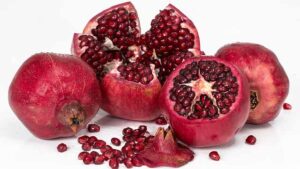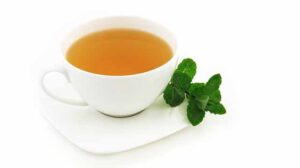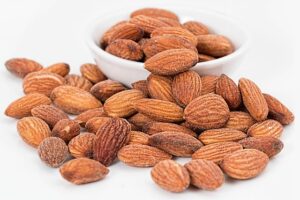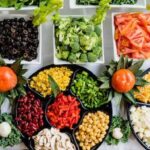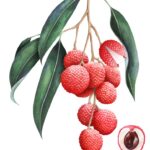Pregnancy is a time when women need to take extra care of their health and nutrition. A healthy diet is essential for both the mother and the unborn child. Superfoods are foods that are rich in nutrients and have many health benefits. Including superfoods in your pregnancy diet can provide your body with essential nutrients for the growth and development of your baby. In this article, we will discuss about 10 best superfoods for pregnancy.
Blueberries
Broccoli
Kale
Oats
Chia Seeds
Bananas
Pomegranate
Green tea
Cocoa nibs
Almond
Read also :- How Much You Eat During Pregnancy Affect Baby Weight
Blueberries
A balanced diet is important when it comes to a healthy pregnancy. Eating a balanced diet that includes plenty of fruit and vegetables can help make sure you and your baby are getting the nutrients you need. And when it comes to superfoods for pregnancy, blueberries are the first choice.
Blueberries are packed with antioxidants, fiber and vitamins C and K, making them a nutrient-dense food that can benefit both you and your growing baby. Here are some reasons why blueberries are included in the pregnancy diet:
Antioxidants :- Blueberries are rich in antioxidants, such as anthocyanins, which may help protect your cells from free radical damage. This can be especially important during pregnancy, as your body is under extra stress and your cells are working harder to support your growing baby.
Fiber :- Eating foods high in fiber can help regulate your digestion and prevent constipation, which is a common problem during pregnancy. Blueberries are a good source of both soluble and insoluble fiber, which makes them a great choice for promoting digestive health.
Vitamin C :- Getting enough vitamin C is important during pregnancy, as it can help with your immune system and the development of your baby’s skin, bones and teeth. Blueberries are an excellent source of vitamin C, with just one cup providing over 20% of the recommended daily intake.
Vitamin K :- Vitamin K is essential for blood clotting and bone health, and blueberries are a good source of this important nutrient. Consuming adequate amounts of vitamin K during pregnancy can help prevent excessive bleeding during childbirth and help with the development of your baby’s bones.
Apart from these benefits, blueberries are also a delicious and versatile food that can be easily included in your pregnancy diet. Add them to your morning oatmeal, blend them into smoothies, or enjoy them as a breakfast on their own.
When shopping for blueberries, choose organic varieties if possible to avoid exposure to pesticides. And remember that while blueberries are a nutritious food, they should be consumed in moderation as part of a balanced diet.
Broccoli
Eating a healthy and balanced diet during pregnancy is important for both the mother and the growing baby. One way to make sure you’re getting the nutrients you need is to include superfoods in your diet. Broccoli is a nutrient-rich superfood that is especially beneficial during pregnancy.
Broccoli is rich in fiber, folate and vitamin C, which makes it a great addition to your pregnancy diet. Here are some of the reasons why broccoli is essential for pregnant women:
Fiber :- Eating foods high in fiber can help regulate digestion and prevent constipation, which is a common problem during pregnancy. Broccoli is a great source of fiber, providing 2 grams of fiber in just one cup.
Folate :- Folate is essential for fetal development and may help prevent birth defects. Broccoli is a good source of this important nutrient, with one cup providing more than 20% of the recommended daily intake.
Vitamin C :- Getting enough vitamin C is important during pregnancy, as it can help with the immune system and the development of the baby’s skin, bones and teeth. Broccoli is a great source of vitamin C, with just one cup providing over 100% of the recommended daily intake.
Apart from these benefits, broccoli is also a versatile food that can be easily included in your pregnancy diet. It can be steamed, roasted, stir-fried, or added to soups and stews. Try combining broccoli with other superfoods like quinoa or sweet potatoes for a nutritious and delicious meal.
When shopping for broccoli, look for organic varieties to avoid exposure to harmful pesticides. And remember to cook broccoli thoroughly to avoid any possible contamination with harmful bacteria.
Kale
Kale is rich in essential nutrients, including vitamins A, C, and K, as well as fiber, calcium, and iron. Here are some reasons why kale is a great addition to your pregnancy diet:
Vitamin A :- Kale is an excellent source of vitamin A, which is essential for the development of the eyes, bones and skin of a growing baby. Vitamin A also supports the immune system and helps prevent infection.
Vitamin C :- Kale is rich in vitamin C, which can help with a healthy immune system and the development of a baby’s skin, bones and teeth. Vitamin C may also help increase the absorption of iron, which is important during pregnancy.
Vitamin K :- Vitamin K is essential for blood clotting and bone health, and kale is a great source of this nutrient. Consuming adequate amounts of vitamin K during pregnancy can help prevent excessive bleeding during childbirth and help with the development of the baby’s bones.
Fiber :- Eating foods high in fiber can help regulate digestion and prevent constipation, which is a common problem during pregnancy. Kale is a great source of fiber during pregnancy, which can help promote digestive health and keep you feeling full.
There are a few things to keep in mind while including kale in your pregnancy diet. First, it’s important to wash kale thoroughly to remove any dirt or contaminants. Second, kale can be eaten cooked or raw, but it is important to cook it thoroughly to avoid any potential contamination with harmful bacteria. Lastly, be mindful of portion sizes, as too much of any food can lead to excessive weight gain during pregnancy.
Read also :- What Are The Super Foods
Oats
Oats are a great option when it comes to superfoods for pregnancy. Rich in fiber, vitamins and minerals, oats can provide many health benefits during pregnancy. Here are some reasons why oats are essential in a pregnancy diet:
Fiber :- Oats are a great source of both soluble and insoluble fiber, which can help regulate digestion and prevent constipation, a common problem during pregnancy. Additionally, fiber may help control blood sugar levels, which is important for preventing gestational diabetes.
Iron :- Iron is an essential nutrient during pregnancy, as it helps in the growth and development of the baby. Oats are a good source of iron, which can help prevent anemia, a condition that can lead to fatigue and other health problems.
Folate :- Folate is a B-vitamin that is essential for fetal development, especially in the early stages of pregnancy. Oats are a good source of folate, which may help prevent birth defects and aid in healthy brain development.
Protein :- Oats are also a good source of protein, which is important for the growth and development of the baby’s tissues and organs.
There are a few things to keep in mind while including oats in your pregnancy diet. First, opt for steel-cut or rolled oats instead of instant oatmeal, which can be high in added sugars. Second, experiment with different toppings, such as fresh fruit, nuts and seeds, to add flavor and nutrients. Lastly, be careful about the quantity you eat, as too much of any food can lead to excessive weight gain during pregnancy.
Adding oats to your diet can be easy and delicious. Enjoy a bowl of oatmeal for breakfast, or add oats to smoothies or baked goods for a healthy and filling snack.
Chia Seeds
As an expectant mother, you want to make sure that you are consuming a balanced and healthy diet that supports your baby’s growth and development. That is Chia Seeds.
Chia seeds are tiny but mighty, packed with nutrients that are beneficial to both you and your developing baby. Here are some reasons why chia seeds should be included in your pregnancy diet:
Omega-3 fatty acids :- Chia seeds are one of the best plant-based sources of omega-3 fatty acids, which are essential for fetal brain and eye development. Omega-3 fatty acids also help control blood pressure, reduce inflammation, and improve heart health.
Fiber :- During pregnancy, many women experience constipation due to hormonal changes in their body. Chia seeds are a rich source of fiber, which can help keep your digestive system healthy and prevent constipation.
Protein :- As your baby grows, so does the need for protein in your diet. Chia seeds are a great source of plant-based protein, which contains all nine essential amino acids that your body needs to function properly.
Antioxidants :- Chia seeds are high in antioxidants, which help protect your cells from free radical damage. Antioxidants also play an important role in supporting your immune system during pregnancy.
Chia seeds are easy and versatile to add to your diet. You can sprinkle them on your morning cereal or yogurt, blend them into smoothies, or use them as an egg substitute in baking recipes.
When purchasing chia seeds, be sure to buy from a reputable source and store them in an airtight container in a cool, dry place. It is also essential to drink plenty of water when consuming chia seeds to help prevent dehydration.
Bananas
Bananas are an excellent source of vitamins and minerals that can benefit both you and your growing baby. Here are some reasons why bananas should be a staple in your pregnancy diet:
Potassium :- Bananas are a rich source of potassium, which is important for maintaining healthy blood pressure and preventing muscle cramps. During pregnancy, your body needs extra potassium to aid in the development of your growing baby.
Fiber :- Eating foods high in fiber can help regulate your digestion and prevent constipation, which is a common problem during pregnancy. Bananas are a good source of fiber, which can help keep your digestive system running smoothly.
Vitamin C :- Getting enough vitamin C is important during pregnancy, as it can help with your immune system and the development of your baby’s skin, bones and teeth. Bananas are a good source of vitamin C, providing about 10% of the recommended daily intake.
Vitamin B6 :- Bananas are also rich in vitamin B6, which is important for brain development and the production of red blood cells. Getting enough vitamin B6 during pregnancy can help prevent anemia and help your baby’s brain develop.
Apart from these benefits, bananas are a versatile and convenient food that can be easily included in your pregnancy diet. They can be eaten on their own, sliced over cereal or yogurt, or blended into smoothies.
When choosing bananas, choose ripe bananas with no brown spots, as they are higher in antioxidants and easier to digest. And remember that bananas are a healthy food, but they should be consumed in moderation as part of a balanced diet.
Pomegranate
Pomegranate is regarded as a superfood for its high nutrient content, including vitamins C and K, folate and potassium. But why are pomegranates especially so beneficial during pregnancy? Let us find out 10 reasons why pomegranate is a superfood for pregnant women.
Rich in Antioxidants :- Pomegranate seeds are packed with antioxidants that may help protect against cell damage caused by free radicals. This is especially important during pregnancy, as oxidative stress can contribute to complications such as preeclampsia.
Boosts Immunity :- Pomegranates contain vitamin C, which helps boost your immune system, protecting you and your baby from infections and diseases.
Helps prevent anemia :- Pomegranate is a good source of iron, which is essential for red blood cell production. Anemia is common during pregnancy and consuming pomegranate can help prevent this condition.
Helps digestion :- Pomegranate is a rich source of fiber, which can help regulate your digestion and prevent constipation, which is a common problem during pregnancy.
Supports healthy skin :- Pomegranates are rich in vitamin K, which plays an important role in skin health. Vitamin K helps reduce dark circles, blemishes and other skin imperfections.
Helps control blood pressure :– Pomegranates contain potassium, which can help control blood pressure and prevent high blood pressure, a condition that is more common in pregnancy.
Supports brain development :- Pomegranates are rich in folate, a B-vitamin that is essential for healthy brain development in the fetus.
Reduces Inflammation :- Pomegranates contain compounds that have anti-inflammatory properties. It can help reduce inflammation in the body, which is beneficial during pregnancy.
Lowers the risk of preterm labor :- Pomegranates contain compounds that may help prevent preterm labor and premature birth.
Provides energy :- Pomegranates contain natural sugars that can help increase your energy levels and make you feel alert and focused throughout the day.
Pomegranate is a superfood that is especially beneficial for pregnant women. Its high nutrient content may help support your health and the health of your growing baby. So, add some pomegranate to your diet today and enjoy its many health benefits!
Read also :- How Much You Eat During Pregnancy Affect Baby Weight
Green tea
Green tea is a type of tea made from unfermented leaves, and is known for its high concentration of antioxidants, which are compounds that help protect the body from free radical damage. Free radicals can cause cell damage and have been linked to many chronic diseases, including cancer, heart disease and Alzheimer’s disease.
Some of the benefits of drinking green tea during pregnancy:
Provides antioxidants :- Green tea is a great source of antioxidants, including catechins, which are known for their ability to protect against cell damage.
Lowers the risk of gestational diabetes :- Drinking green tea during pregnancy may help reduce the risk of gestational diabetes, a condition that can develop during pregnancy and cause complications for both mother and baby. Can
Boosts the Immune System :- Green tea is also known to boost the immune system, which is especially important during pregnancy when the immune system is often weakened.
Reduces inflammation :- Drinking green tea may also help reduce inflammation, which is associated with many chronic diseases.
Supports brain health :- Some studies have also suggested that the antioxidants in green tea may help improve brain function and reduce the risk of neurodegenerative diseases.
When it comes to including green tea in your diet during pregnancy, it is important to note that green tea contains caffeine. While caffeine consumption in general is considered safe during pregnancy, it is important that you limit your intake to no more than 200mg per day.
Cocoa nibs
Cacao nibs are small pieces of crushed cocoa beans that are known for their rich flavor and nutritional benefits. They are a good source of antioxidants, fiber, iron and magnesium, which can be beneficial for pregnant women.
One of the potential benefits of cocoa nibs during pregnancy is their ability to improve blood flow and reduce the risk of high blood pressure. This is important because high blood pressure can be a risk factor for pre-eclampsia, a serious condition that can cause complications for both mother and baby.
Cacao nibs are also a good source of iron, which is important for pregnant women to prevent anemia. Anemia during pregnancy can lead to fatigue, weakness, and other complications.
Another benefit of cocoa nibs is their high fiber content, which can help prevent constipation, a common problem during pregnancy.
However, it is important to note that cacao nibs also contain caffeine, which should be limited during pregnancy. Pregnant women are advised to limit their caffeine intake to no more than 200mg per day, which is roughly equivalent to one cup of coffee.
Almond
Almonds are a great source of several essential nutrients that are important for both the mother and the baby. Almonds are high in protein, fiber, healthy fats, vitamins and minerals. Here are some of the ways almonds can benefit pregnant women:
Provide essential nutrients :- Almonds are a rich source of vitamin E, magnesium, iron and calcium, all of which are essential nutrients for a healthy pregnancy. Vitamin E is essential for the development of the baby’s brain and nervous system, while magnesium and calcium are important for the development of strong bones and teeth.
Help manage blood sugar levels :– Pregnant women are at a higher risk of developing gestational diabetes, a condition that can lead to complications during pregnancy and childbirth. Almonds are low in carbohydrates and high in fiber, which helps control blood sugar levels and reduce the risk of gestational diabetes.
Aids digestion :- Many pregnant women experience digestive issues like constipation and flatulence. Almonds are rich in fiber, which helps promote regular bowel movements and reduce these issues.
Boost Energy Levels :- Pregnancy can be exhausting, and many women struggle with fatigue. Almonds are a great source of healthy fats and protein, which can help increase energy levels and keep you feeling full and satisfied.
It is easy to include almonds in your diet during pregnancy. You can eat them raw as a snack, add them to salads or smoothies, or use almond butter as a spread. However, it is important to note that almonds are high in calories, so it is important that they are consumed in moderation and as part of a balanced diet.
